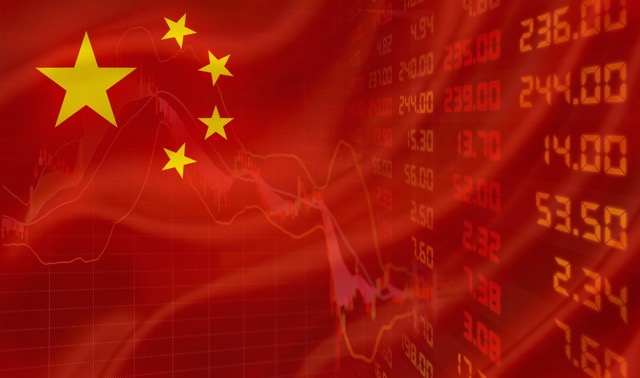
If you have entered “China” into the news tab of any search engine over the last few weeks, you would definitely get the impression that the sky is falling in the Middle Kingdom. Plunging stock markets, slowing exports and a sliding currency has generated great concern about the chances for an economic hard landing among global and local investors, governments, retailers and anyone else with a stake in the continued prosperity of China.
But you can count me among the few who are not ready to panic. The recent turmoil in Chinese stocks and the devaluation of the yuan have something in common. Neither event will have direct effects on the larger Chinese economy and the ongoing growth of the country’s consumer culture.
Let’s look at the stock market first. Bourses in China are not connected to the broader economy as they are in Western markets. In fact only 5 percent of all Chinese citizens own stock. The markets are largely an arena for experimentation and speculation for an elite few.
The best proof of this detachment is that when the markets went up 75 percent, 100 percent, 150 percent over the last 18 months, the overall economy did not improve accordingly and the average Chinese citizen was no richer.The same is true now that the markets have halved. The economy is not crashing and the average Chinese citizen is no poorer.
Regarding the recent devaluation in the yuan, the facts and circumstances are different but the end result is the same. China’s currency has appreciated 25-30 percent against most major currencies over the last eight years. A 3 percent to 4 percent adjustment is not going to have a major impact on the overall economy or on the pocketbook of the average consumer.
The explanation for the yuan adjustment is fairly simple. Exports are still an important part of the Chinese economy and as the price of labor and materials has gone up in China it is harder to compete with other countries. Beijing’s move is a short-term plan to help boost exports by making them relatively cheaper. Meanwhile, the government’s main focus is still on moving more GDP into consumption and the services industries.
While it remains to be seen what the full effects of these two recent events will be, over time they are likely to prove to be healthy adjustments. China’s economy is entering a new, more mature phase. Maturing economies, even those with Chinese characteristics, are marked by highs and lows, positive events and negative events. In the long run the Chinese economy will continue to grow and millions of Chinese citizens will urbanize and become middle-class consumers.
So what does this mean for brands and retailers currently or planning to engage Chinese consumers?
My views are tempered by the lessons I learned living and working in China, lessons fine tuned under the tutelage of my mentor and friend James Fallows of The Atlantic, one of the greatest living observers and writers on China.To wit:China is rich and poor, developed and backward, advancing and retreating, innovating and copycatting, liberalizing and retrenching, confident and insecure, moving toward and away from Western-style market capitalism. Rarely are the China mega-bulls (“China is taking over the world economically, politically, militarily”) or the China mega-bears (“China is a house of cards that will collapse next week”) right in their total optimism or pessimism.
After the 12th Five Year Plan came out in 2010-2011, I wrote that its stated aim of moving more of the economy and GDP into consumption and services was the perfect prescription for another 30 years of economic health and growth. Five years in there has been progress, but not enough to completely offset the move away from a cheap-export-based economy. The stock market bubble and yuan adjustment are signs that there is still work to do.
Still, for most brands and retailers, China must remain an essential part of their future growth plans.After all there are more than 350 million Chinese middle class consumers, almost 800 million with disposable income, four million millionaire households (and growing) and China is home to the second-highest number of billionaires after the U.S.
There are more than 550 million online shoppers in China and in a world where retail sales are either flat or down in most markets, China is a major growth engine for foreign brands and retailers. One only needs to look at the runaway success of companies like Zara, H&M, Apple, COACH and others to get a taste of the promise Chinese consumers hold.
China and its economy will still be one of the most important in the world following recent events and Chinese consumers will still be the most numerous and important in the 21st century. Recent events are a sign of a maturing economy and the smart brands and companies will see the long-term upside rather than panic over short-term events.
Michael Zakkour is vice president, China/Asia Pacific Practice at global consulting firm Tompkins International and is the author of best-selling business book “China’s Super Consumers.”




